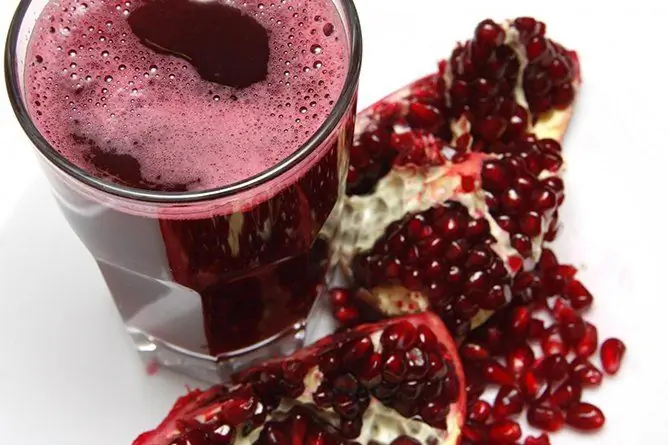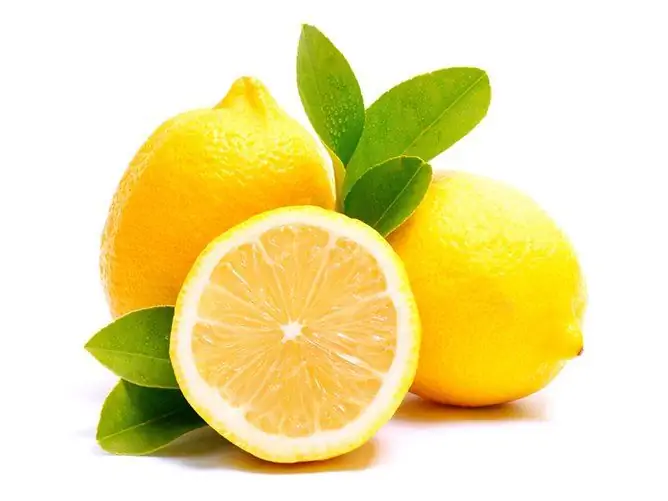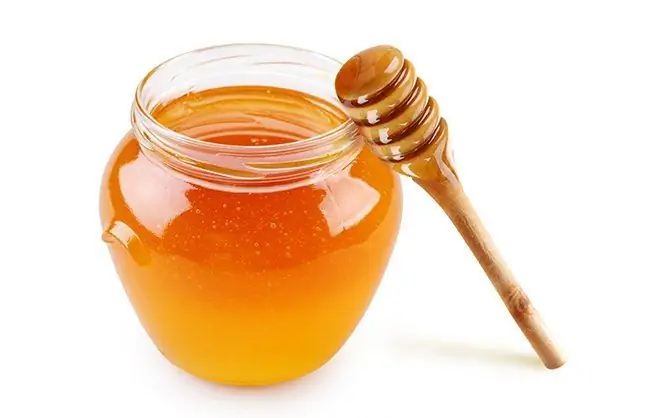- Author Rachel Wainwright wainwright@abchealthonline.com.
- Public 2023-12-15 07:39.
- Last modified 2025-11-02 20:14.
Does pomegranate juice increase or decrease pressure?
The content of the article:
- Does pomegranate raise or lower blood pressure?
- Composition of pomegranate berries
- Indications for the use of pomegranate juice
- Contraindications to pomegranate juice
- Can i drink pomegranate juice during pregnancy?
- Video
Does pomegranate juice raise or lower blood pressure? Why is pomegranate strongly recommended to be included in the diet for people suffering from diseases of the cardiovascular system? The fruit of the pomegranate tree has been used in human nutrition since ancient times. They have a pleasant sweet and sour taste, but most importantly, they contain many vitamins, trace elements, biologically active substances, due to which they are able to bring great benefits to the body. We will talk about the exact effect of pomegranate juice on pressure in this article.

Pomegranate juice, in addition to affecting blood pressure, strengthens the immune system and prevents iron deficiency anemia.
Does pomegranate raise or lower blood pressure?
Due to the high content of biologically active substances in its composition, pomegranate juice has a pronounced antispasmodic and diuretic effect. It has been established that its intake in an amount of 60-200 ml per day reduces high blood pressure by 10-20%. It is also interesting that at normal or low blood pressure, the hypotensive effect of the juice practically does not manifest itself (only if you use it in large quantities).
Pomegranate fruits have a beneficial effect on blood vessels - they increase their elasticity and reduce the risk of cholesterol plaque formation. Improving the condition of the blood vessels helps to normalize blood pressure, as they regain the ability to compensate for the heart beat.
It should be noted that only freshly squeezed pomegranate juice has a healing effect. Any other drinks based on pomegranate juice that can be purchased in the store may be a valuable food product, but they have no healing power.
Composition of pomegranate berries
Pomegranate fruits are a real natural storehouse of vitamins and microelements. They contain in their composition:
- B vitamins - necessary for the normal functioning of the nervous system, allow the body to cope with stress and eliminate its negative manifestations;
- vitamin P (rutin) - has a beneficial effect on the condition of the walls of blood vessels, increases their elasticity and reduces permeability;
- vitamin C (ascorbic acid) - is necessary for the normal course of many biochemical reactions, increases immunity;
- vitamin E (tocopherol) - has a pronounced antioxidant effect, prevents cell damage by free radicals;
- trace elements (iron, copper, potassium) - due to its high iron content, pomegranate juice is often prescribed by doctors for patients suffering from iron deficiency anemia.
For the high content of polyphenols, pomegranate fruits are called "the elixir of life". Polyphenols are a class of biologically active substances that neutralize the damaging effect of free radicals on cellular structures. In pomegranate, they are represented by ellagotonin (found in the white peel of the fruit) and anthocyanins (found in the pulp of the grains and give it a red color). Thus, the entire fetus has medicinal value, including that part of it that is usually thrown away.
Indications for the use of pomegranate juice
Pomegranate juice is recommended by doctors as a component of complex therapy for the following diseases:
- hypertension;
- Iron-deficiency anemia;
- immunodeficiency states;
- atherosclerosis;
- general depletion of the body;
- diarrhea.
For the treatment of hypertension, pomegranate juice is taken three times a day, 50-150 ml. It is advisable to dilute it in a 1: 1 ratio with freshly squeezed carrot juice or warm boiled water. Considering that pomegranate juice contains large quantities of organic acids that have a negative effect on the enamel of the teeth, it is better to drink it through a straw. If the juice seems too sour, then it can be sweetened with 1-2 teaspoons of honey. The course of treatment is 30 days.
Contraindications to pomegranate juice
Pomegranate juice increases the acidity of the stomach, so it is contraindicated for people suffering from gastritis with high acidity, Zollinger syndrome, gastric ulcer and duodenal ulcer. It should be taken with caution by persons prone to constipation.
Large amounts of pomegranate juice (150-450 ml per day) are recommended only for the treatment of hypertension. In all other cases (iron deficiency anemia, condition after infectious diseases), you should drink no more than 150-200 ml per day. In such an amount, the juice does not have a hypotensive effect and therefore can be taken even by hypotensive patients.

Only freshly squeezed pomegranate juice has healing properties, not the one sold in stores
Can i drink pomegranate juice during pregnancy?
In the first trimester of pregnancy, women often suffer from early toxicosis. Pomegranate juice diluted with water helps to alleviate their condition, reduce the severity of nausea and the frequency of vomiting. However, you should drink it with caution, as pomegranate juice lowers blood pressure and can increase the manifestation of weakness and drowsiness, which often accompany the onset of pregnancy.
Due to its high content of iron and vitamins, pomegranate juice is good for anemia. Therefore, it can be recommended for pregnant women as a component of complex therapy for iron deficiency anemia or to prevent its development.
Despite the fact that pomegranate juice has a hypotensive effect, it should not be used to treat hypertension in pregnant women. This is mainly due to the fact that high blood pressure increases the risk of developing serious complications from both the expectant mother and the developing fetus. Therefore, the therapy of hypertension in pregnant women should only be carried out by a physician using carefully selected medications.
Video
We offer for viewing a video on the topic of the article.

Elena Minkina Doctor anesthesiologist-resuscitator About the author
Education: graduated from the Tashkent State Medical Institute, specializing in general medicine in 1991. Repeatedly passed refresher courses.
Work experience: anesthesiologist-resuscitator of the city maternity complex, resuscitator of the hemodialysis department.
Found a mistake in the text? Select it and press Ctrl + Enter.






